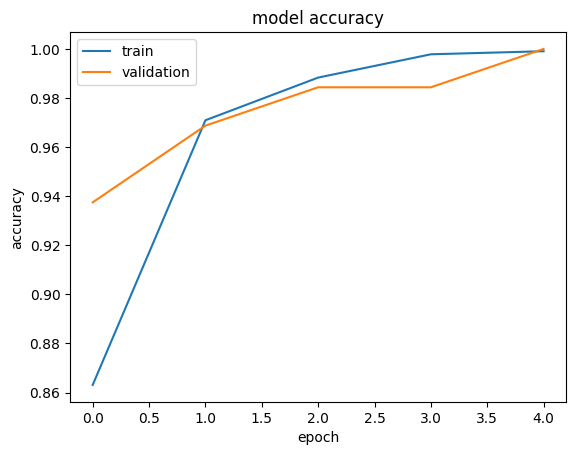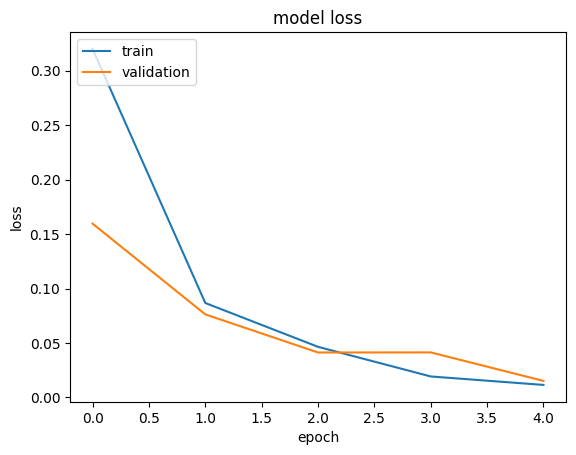Keras Signature Classification on ICDAR 2011 Signature Dataset using Siamese CNN.
Backbone models: custom CNN and pretrained CNNs on ImageNet including Xception, InceptionV3, ResNet50, and MobileNetV2
import os
import numpy as np
import pandas as pd
from PIL import Image
import matplotlib.pyplot as plt
from tensorflow import keras as keras
from tensorflow.keras.models import Sequential, Model
from tensorflow.keras.layers import Input, Conv2D, MaxPooling2D, Flatten, Dense, Lambda, Dropout, BatchNormalization, GlobalAveragePooling2D
from tensorflow.keras import backend as K
from tensorflow.keras.optimizers import Adam
from tensorflow.keras.preprocessing.image import img_to_array
from keras.callbacks import ModelCheckpoint, LearningRateScheduler, EarlyStopping, ReduceLROnPlateau, TensorBoard
from sklearn.model_selection import train_test_split
from sklearn.metrics import confusion_matrix
from google.colab import drive# -------------- Model ----------------
# backbone_model = 'custom_cnn'
## CNN models (pretrained on ImageNet)
# backbone_model = 'Xception'
# backbone_model = 'InceptionV3'
# backbone_model = 'ResNet50'
backbone_model = 'MobileNetV2'
# freeze convolutional layers:
freeze_conv_layers = True
# data:
img_size = 224 # image size
# training parameters:
batch_size = 64 # batch size
learning_rate = 1e-2 # learning rate
num_epoches = 5 # maximum number of epoches
steps_per_epoch = 100 # itration steps in each epoch
data_path = "./sign_data_models"Downloading Signature_Verification_Dataset from www.kaggle.com.
You can manually download and use signature-verification-dataset.zip file from this url:
https://www.kaggle.com/datasets/robinreni/signature-verification-dataset/data
! pip install -q kaggle
from google.colab import files
if not os.path.exists("kaggle.json"):
# Choose and upload Kaggle's API token file: kaggle.json
# (in your kaggle profile, and create new token file and download kaggle.json)
# Choose the kaggle.json file that you downloaded
files.upload()
# Make directory named kaggle and copy kaggle.json file there.
! mkdir ~/.kaggle
! cp kaggle.json ~/.kaggle/
# Change the permissions of the file.
! chmod 600 ~/.kaggle/kaggle.json
if not os.path.exists("signature-verification-dataset.zip"):
# download dataset
! kaggle datasets download -d robinreni/signature-verification-dataset
unzip the dataset:
# unzip dataset
!unzip "signature-verification-dataset.zip"Image preprocessing function and data loader class:
def img_norm(x):
# a simple image preprocessing function
return (x - x.mean(axis=(0,1,2), keepdims=True)) / x.std(axis=(0,1,2), keepdims=True)
class DataLoader:
#constructor
def __init__(self, dataset, batch_size=32, img_size=112, dir='./'):
self.dataset = dataset
self.batch_size = batch_size
self.dir = dir
self.img_size = img_size
#shuffler
def shuffle(self):
return self.dataset.sample(frac=1)
#generator
def datagen(self, repeat_flag=True):
num_samples = len(self.dataset)
while True:
# shuffling the samples
self.dataset = self.shuffle()
for batch in range(1, num_samples, self.batch_size):
image1_batch_samples = self.dir + "/" + self.dataset.iloc[:, 0][batch:batch + self.batch_size]
image2_batch_samples = self.dir + "/" + self.dataset.iloc[:, 1][batch:batch + self.batch_size]
label_batch_samples = self.dataset.iloc[:, 2][batch:batch + self.batch_size]
Image1, Image2, Label = [], [], []
for image1, image2, label in zip(image1_batch_samples, image2_batch_samples, label_batch_samples):
# append them to Images directly
image1_data = Image.open(image1)
image2_data = Image.open(image2)
# resizing the images
image1_data = image1_data.resize((self.img_size, self.img_size))
image2_data = image2_data.resize((self.img_size, self.img_size))
# converting to array
image1_data = img_to_array(image1_data)
image2_data = img_to_array(image2_data)
# image1_data = preprocess_input(image1_data)
# image2_data = preprocess_input(image2_data)
image1_data = img_norm(image1_data)
image2_data = img_norm(image2_data)
Image1.append(image1_data)
Image2.append(image2_data)
Label.append(label)
# convert each list to numpy arrays to ensure that they get processed by fit function
Image1 = np.asarray(Image1).astype(np.float32)
Image2 = np.asarray(Image2).astype(np.float32)
Label = np.asarray(Label).astype(np.float32)
yield [Image1, Image2], Label
if not repeat_flag:
breakgenerators:
train_set_file = "./sign_data/train_data.csv"
test_set_file = "./sign_data/test_data.csv"
train_val_set = pd.read_csv(train_set_file)
train_set, val_set = train_test_split(train_val_set, test_size=0.2)
test_set = pd.read_csv(test_set_file)
train_gen= DataLoader(train_set, batch_size, img_size, "./sign_data/train/")
test_gen = DataLoader(test_set, batch_size, img_size, "./sign_data/test/")
val_gen= DataLoader(val_set, batch_size, img_size, "./sign_data/train/")Test the train generator:
train_batch = next(train_gen.datagen())
print("Train batch images shape:", train_batch[0][0].shape, train_batch[0][1].shape)
print("Train batch labels shape:", train_batch[1].shape)Train batch images shape: (64, 224, 224, 3) (64, 224, 224, 3)
Train batch labels shape: (64,)
Base Model:
from tensorflow.keras.applications.xception import Xception
from tensorflow.keras.applications.inception_v3 import InceptionV3
from tensorflow.keras.applications.resnet50 import ResNet50
from tensorflow.keras.applications.mobilenet_v2 import MobileNetV2
def custom_cnn():
model = Sequential()
model.add(Conv2D(4, (3,3), activation='relu', input_shape=input_shape))
model.add(MaxPooling2D(2,2))
model.add(Dropout(0.25))
model.add(Conv2D(16, (3,3), activation='relu'))
model.add(MaxPooling2D(5,5))
model.add(Dropout(0.25))
model.add(Flatten())
model.add(Dense(256, activation='relu'))
return model
def def_base_model(backbone='xception', freeze_conv_layers=True):
print('backbone model: ' + backbone)
if backbone == 'Xception':
base_model = Xception(weights='imagenet', include_top=False)
elif backbone == 'InceptionV3':
base_model = InceptionV3(weights='imagenet', include_top=False)
elif backbone == 'ResNet50':
base_model = ResNet50(weights='imagenet', include_top=False)
elif backbone == 'MobileNetV2':
base_model = MobileNetV2(weights='imagenet', include_top=False)
else:
raise("unexpected backbone model. Backbone model can be choosen from: "
"'Xception', 'InceptionV3', 'MobileNetV2', and 'ResNet50'")
x = base_model.output
x = GlobalAveragePooling2D()(x)
x = Flatten()(x)
x = Dense(128, activation='relu')(x)
# first: train only the top layers (which were randomly initialized)
# i.e. freeze all convolutional layers
if freeze_conv_layers:
print('freeze convolutional layers ...')
for layer in base_model.layers:
layer.trainable = False
model = Model(inputs=base_model.input, outputs=x)
return modelSiamese Model:
def siamese_model(input_shape, backbone_model='custom_cnn',
freeze_conv_layers=True):
input1 = Input(input_shape)
input2 = Input(input_shape)
if backbone_model=='custom_cnn':
base_model = custom_cnn()
else:
base_model = def_base_model(backbone_model, freeze_conv_layers)
# Call the model with the inputs:
embedding1 = base_model(input1)
embedding2 = base_model(input2)
# custom loss layer:
loss_layer = Lambda(lambda tensors: K.abs(tensors[0] - tensors[1]))
manhattan_distance = loss_layer([embedding1, embedding2])
# add a dense layer for 2-class classification (genuine and fraud):
output = Dense(1, activation='sigmoid')(manhattan_distance)
network = Model(inputs=[input1, input2], outputs=output)
return networkmodel = siamese_model((img_size, img_size, 3), backbone_model, freeze_conv_layers)
model.summary()WARNING:tensorflow:`input_shape` is undefined or non-square, or `rows` is not in [96, 128, 160, 192, 224]. Weights for input shape (224, 224) will be loaded as the default.
backbone model: MobileNetV2
Downloading data from https://storage.googleapis.com/tensorflow/keras-applications/mobilenet_v2/mobilenet_v2_weights_tf_dim_ordering_tf_kernels_1.0_224_no_top.h5
9406464/9406464 [==============================] - 1s 0us/step
freeze convolutional layers ...
Model: "model_1"
__________________________________________________________________________________________________
Layer (type) Output Shape Param # Connected to
==================================================================================================
input_1 (InputLayer) [(None, 224, 224, 3)] 0 []
input_2 (InputLayer) [(None, 224, 224, 3)] 0 []
model (Functional) (None, 128) 2421952 ['input_1[0][0]',
'input_2[0][0]']
lambda (Lambda) (None, 128) 0 ['model[0][0]',
'model[1][0]']
dense_1 (Dense) (None, 1) 129 ['lambda[0][0]']
==================================================================================================
Total params: 2422081 (9.24 MB)
Trainable params: 164097 (641.00 KB)
Non-trainable params: 2257984 (8.61 MB)
__________________________________________________________________________________________________
Define f1_score function to use during training:
def f1_score(y_true, y_pred):
true_positives = K.sum(K.round(K.clip(y_true * y_pred, 0, 1)))
possible_positives = K.sum(K.round(K.clip(y_true, 0, 1)))
predicted_positives = K.sum(K.round(K.clip(y_pred, 0, 1)))
precision = true_positives / (predicted_positives + K.epsilon())
recall = true_positives / (possible_positives + K.epsilon())
f1_val = 2*(precision*recall)/(precision+recall+K.epsilon())
return f1_valCompile the model:
lr_schedule = keras.optimizers.schedules.ExponentialDecay(
initial_learning_rate=learning_rate,
decay_steps=5*steps_per_epoch,
decay_rate=0.5)
optimizer = Adam(learning_rate=lr_schedule, weight_decay=0.2)
model.compile(loss="binary_crossentropy", optimizer=optimizer, metrics=['accuracy', f1_score])early_stopper = EarlyStopping(monitor='val_loss', min_delta=0, patience=3, verbose=1)
custom_callback = [early_stopper]Train:
print("Training!")
checkpoint_filepath = data_path + '/best_model.hdf5'
model_checkpoint_callback = keras.callbacks.ModelCheckpoint(
filepath=checkpoint_filepath,
monitor='val_accuracy',
mode='max',
save_best_only=True)
history = model.fit(
train_gen.datagen(),
verbose=1,
steps_per_epoch=steps_per_epoch, # set appropriate steps_per_epoch
epochs=num_epoches,
validation_data=val_gen.datagen(),
validation_steps=1, # set appropriate validation_steps
callbacks=[model_checkpoint_callback]
)Training!
Epoch 1/5
100/100 [==============================] - ETA: 0s - loss: 0.3199 - accuracy: 0.8631 - f1_score: 0.8480
/usr/local/lib/python3.10/dist-packages/keras/src/engine/training.py:3000: UserWarning: You are saving your model as an HDF5 file via `model.save()`. This file format is considered legacy. We recommend using instead the native Keras format, e.g. `model.save('my_model.keras')`.
saving_api.save_model(
100/100 [==============================] - 111s 892ms/step - loss: 0.3199 - accuracy: 0.8631 - f1_score: 0.8480 - val_loss: 0.1596 - val_accuracy: 0.9375 - val_f1_score: 0.9375
Epoch 2/5
100/100 [==============================] - 86s 867ms/step - loss: 0.0867 - accuracy: 0.9709 - f1_score: 0.9671 - val_loss: 0.0763 - val_accuracy: 0.9688 - val_f1_score: 0.9643
Epoch 3/5
100/100 [==============================] - 86s 870ms/step - loss: 0.0465 - accuracy: 0.9883 - f1_score: 0.9870 - val_loss: 0.0413 - val_accuracy: 0.9844 - val_f1_score: 0.9818
Epoch 4/5
100/100 [==============================] - 86s 871ms/step - loss: 0.0193 - accuracy: 0.9978 - f1_score: 0.9974 - val_loss: 0.0414 - val_accuracy: 0.9844 - val_f1_score: 0.9831
Epoch 5/5
100/100 [==============================] - 87s 879ms/step - loss: 0.0115 - accuracy: 0.9991 - f1_score: 0.9990 - val_loss: 0.0152 - val_accuracy: 1.0000 - val_f1_score: 1.0000
Plot traning curves:
# list all data in history
print(history.history.keys())
# summarize history for accuracy
plt.plot(history.history['accuracy'])
plt.plot(history.history['val_accuracy'])
plt.title('model accuracy')
plt.ylabel('accuracy')
plt.xlabel('epoch')
plt.legend(['train', 'validation'], loc='upper left')
plt.show()
# summarize history for loss
plt.plot(history.history['loss'])
plt.plot(history.history['val_loss'])
plt.title('model loss')
plt.ylabel('loss')
plt.xlabel('epoch')
plt.legend(['train', 'validation'], loc='upper left')
plt.show()
# summarize history for f1_score
plt.plot(history.history['f1_score'])
plt.plot(history.history['val_f1_score'])
plt.title('model f1_score')
plt.ylabel('f1_score')
plt.xlabel('epoch')
plt.legend(['train', 'validation'], loc='upper left')
plt.show()dict_keys(['loss', 'accuracy', 'f1_score', 'val_loss', 'val_accuracy', 'val_f1_score'])
Save the trained model
keras.saving.save_model(model, backbone_model + '.h5', overwrite=True)<ipython-input-16-910306078cc1>:1: UserWarning: You are saving your model as an HDF5 file via `model.save()`. This file format is considered legacy. We recommend using instead the native Keras format, e.g. `model.save('my_model.keras')`.
keras.saving.save_model(model, backbone_model + '.h5', overwrite=True)
Test
# loaded_model = keras.saving.load_model(backbone_model + '.h5')
loaded_model = keras.saving.load_model(checkpoint_filepath,custom_objects={"f1_score": f1_score})
result = loaded_model.evaluate(test_gen.datagen(repeat_flag=False), batch_size=None,
verbose=1, sample_weight=None, steps=None,
callbacks=None, max_queue_size=10, workers=1,
use_multiprocessing=False, return_dict=False)90/90 [==============================] - 87s 953ms/step - loss: 0.0122 - accuracy: 0.9981 - f1_score: 0.9981
confusion matrix for 2 classes:
y_gt = []
y_pr = []
for data in test_gen.datagen(repeat_flag=False):
labels = data[1]
predictions = loaded_model.predict(data[0], verbose=0)
for i, label in enumerate(labels):
y_gt.append(label)
y_pr.append(predictions[i])y_pr = np.round(y_pr)
cm = confusion_matrix(y_gt, y_pr, normalize='true')
print(cm)[[9.99278499e-01 7.21500722e-04]
[3.02622730e-03 9.96973773e-01]]
Calculate classification metrics on test data:
from sklearn.metrics import classification_report
print(classification_report(y_gt, y_pr)) precision recall f1-score support
0.0 1.00 1.00 1.00 2772
1.0 1.00 1.00 1.00 2974
accuracy 1.00 5746
macro avg 1.00 1.00 1.00 5746
weighted avg 1.00 1.00 1.00 5746


